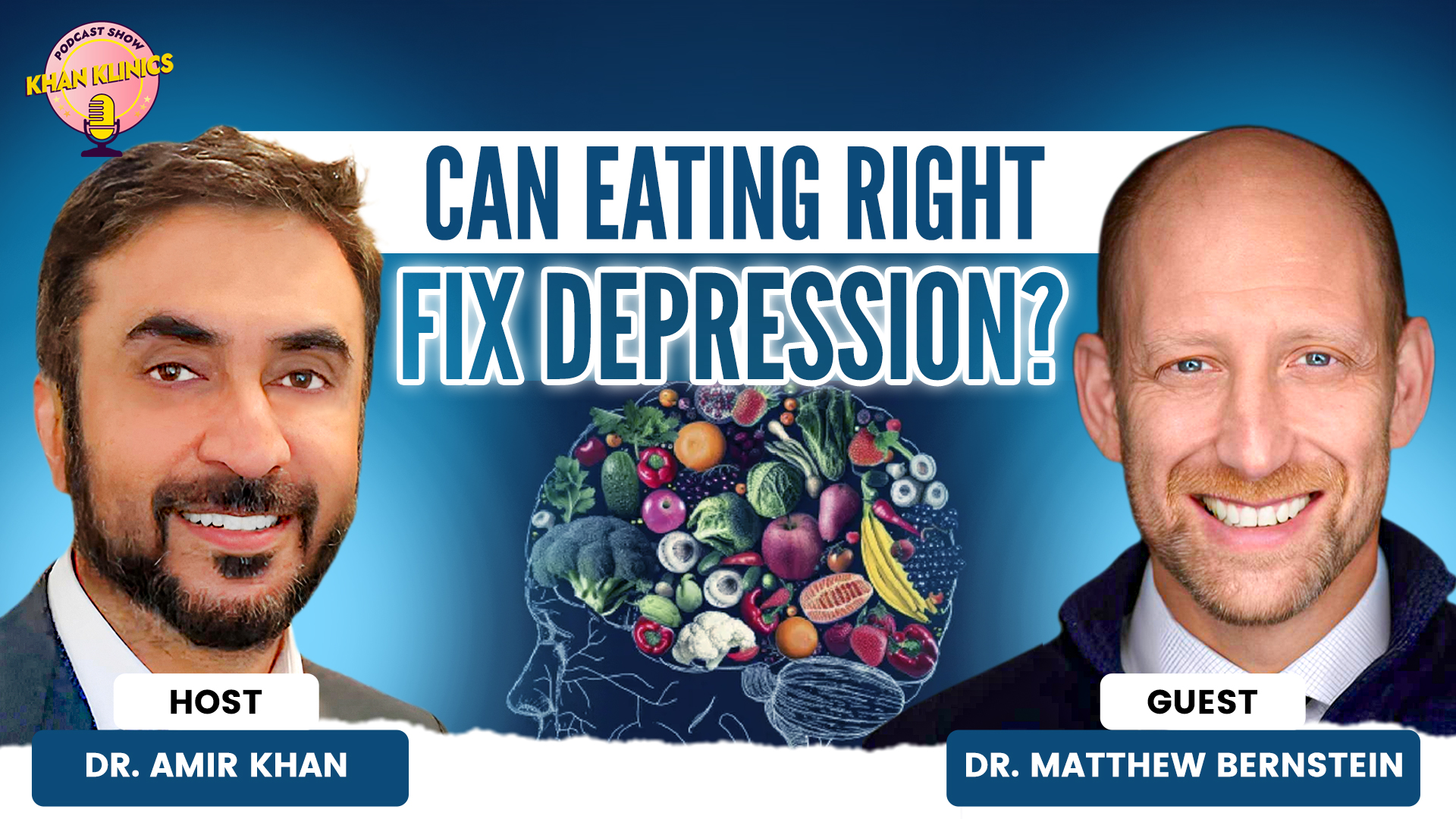Why Your Mental Health Depends on More Than Just Medication
Could your diet and lifestyle be the key to mental well-being? Experts reveal how metabolic psychiatry is transforming mental health care beyond medication
Click here to view the video
During a recent webinar hosted by Khan Klinics in collaboration with American Muslim Today’s (AMT) health podcast and supported by Pulmonics Plus, Dr. Amir Khan led an enlightening discussion with Dr. Matthew Bernstein.
Dr. Bernstein, a leading expert in metabolic psychiatry, shared groundbreaking insights into a new approach to mental health care—one that goes beyond conventional medication.
Their conversation explored how metabolism, nutrition, and lifestyle interventions are revolutionizing psychiatric treatment, offering a holistic, science-backed path to long-term well-being.
The Bidirectional Link Between Metabolism and Mental Health
When Dr. Bernstein was about the connection between metabolic dysfunction and psychiatric disorders. Dr. Bernstein explained that individuals with mental health conditions are more likely to develop metabolic disorders such as cardiovascular disease and diabetes, and vice versa.
He emphasized that metabolic health interventions, such as dietary changes, can significantly impact brain function by reducing inflammation and oxidative stress, improving mitochondrial health, and enhancing brain energy utilization.
 Matthew Bernstein
Matthew BernsteinIntegrating Metabolic Health in Psychiatric Treatment
Dr. Khan inquired about the practical application of metabolic interventions in psychiatric treatment. Dr. Bernstein explained that many patients come to him after exhausting traditional psychiatric treatments.
He educates them on the scientific basis of metabolic psychiatry, helping them understand that dietary and lifestyle modifications are powerful medical interventions, not just complementary wellness strategies. His approach is highly personalized—assessing each patient's metabolic health through lab tests and tailoring interventions based on their condition, motivation level, and response to initial treatments.
Role of the Ketogenic Diet
One of the key topics of discussion was the ketogenic diet’s impact on mental health. Dr. Bernstein described its historical use in treating epilepsy and its potential benefits for psychiatric conditions. By providing the brain with an alternative energy source in the form of ketones, the diet helps bypass insulin resistance, reduce neuroinflammation, and enhance mitochondrial function.
While clinical trials on its effectiveness in psychiatry are still emerging, existing research suggests promising results for conditions like bipolar disorder and major depression.
Intermittent Fasting and Its Neurological Benefits
Dr. Khan then steered the conversation toward intermittent fasting and its influence on brain function. Dr. Bernstein explained how fasting stimulates ketone production, helping to stabilize mood and improve cognitive function. He recommended time-restricted eating (such as a 16:8 fasting schedule) and the use of MCT oil, which rapidly converts to ketones, as effective strategies for patients with psychiatric conditions.
Addressing the Weight Gain Associated with Psychiatric Medications
Recognizing the metabolic side effects of psychiatric medications, Dr. Khan asked Dr. Bernstein about strategies to mitigate weight gain. Dr. Bernstein emphasized the importance of exercise—particularly a combination of aerobic and resistance training—alongside ketogenic or low-carbohydrate diets and intermittent fasting. He also highlighted that improving metabolic health can sometimes allow for medication reduction under medical supervision.
GLP-1 Agonists: A Double-Edged Sword?
The discussion took a turn toward GLP-1 receptor agonists like Ozempic, which have gained popularity for weight loss but have also raised concerns about potential psychiatric side effects, including increased depression and suicidal ideation.
Dr. Bernstein warned that without proper dietary and exercise adjustments, these medications might lead to nutrient deficiencies and muscle loss, which could contribute to worsening mental health.
The Future of Metabolic Psychiatry
As the conversation wrapped up, Dr. Khan asked Dr. Bernstein about the future of metabolic psychiatry. Dr. Bernstein expressed optimism that the field would become more mainstream, shifting psychiatry away from an over-reliance on medication. He envisions a future where psychiatric care integrates metabolic interventions as standard practice, empowering patients to achieve both mental and physical health.
For in-depth discussions and insightful interviews on health and well-being, subscribe to Khan Klinics, powered by AMT. Stay informed and empowered.
